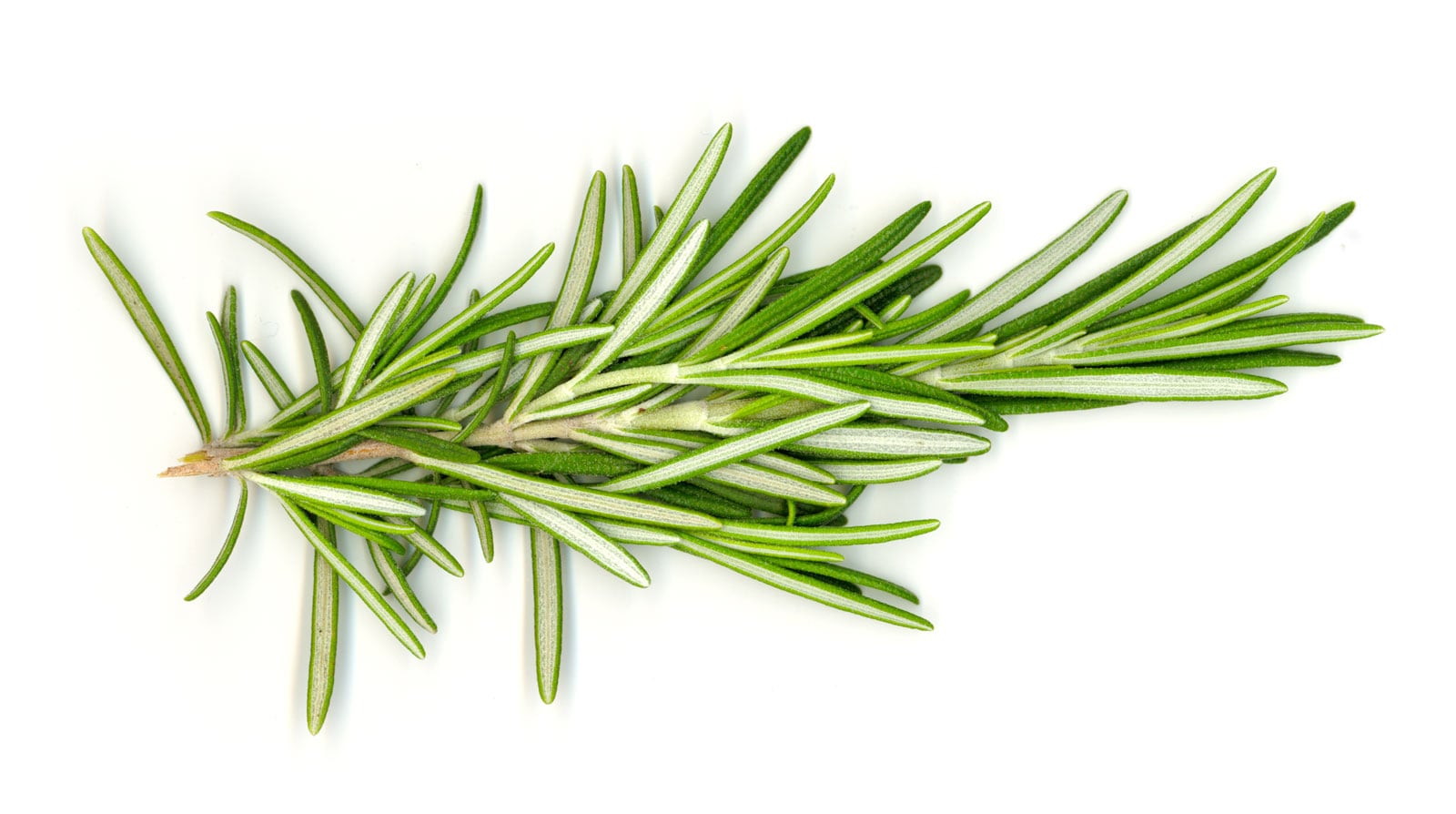



Is there anything that can’t be turned into an infusion? Rosemary is no exception: this aromatic plant that has a very intense flavor that we can find equally in meats, salads, honey and, of course, in tea.
Like other spices such as cloves, cinnamon, bay leaf and oregano, rosemary can also be made into an infusion to result in a comforting hot cup to which medicinal properties are attributed in home remedies.
This plant, native to the Mediterranean and South America, is one of the Lamiaceae, that is, from the same family as other plants in your kitchen such as mint, oregano, lemon balm and basil.
Rosemary has been used for a long time in phytotherapy (herbal medicine) and in Indian Ayurvedic medicine where turmeric is also popular, but is it How many health benefits can your tea bring??

What benefits does rosemary tea have?
He Rosemary is considered a plant for medicinal uses in Mexico and its use has been known since the 17th century, according to the Digital Library of Traditional Mexican Medicine of the UNAM. People consume it mainly for gastrointestinal and respiratory problems:
- Stomach upset.
- Deflate.
- Muscle pain and cramps.
- To relieve discomfort from respiratory diseases such as colds and coughs.
According to said UNAM site, studies have found that rosemary has essential oils with antispasmodic effect, active compounds, antioxidant and possibly liver protective properties.
However, many of the investigations analyze extracts of rosemary or its compounds separately, not specifically the tea, and several of them are in animals, not humans.

Medical News Today adds that rosemary was traditionally used to improve memorystimulate the immune and circulatory system and promote hair growth; However, all of its uses have not been so well proven.
Rich in antioxidants
Healthline highlights that the rosemary tea is rich in antioxidants. A diet rich in these compounds is related to less oxidative damage in the body, which causes chronic diseases such as cancer, heart disease and type 2 diabetes.
Whereby, It is a good idea to add herbs like rosemary to your diet, along with more vegetables and fruits.
Anti-inflammatory
Rosemary has compounds of interest such as rosmarinic acid and carnosic acid, which have anti-inflammatory activityas well as antioxidant.
Could help against some infections
According to Healthlinethe compounds in rosemary tea may have antimicrobial properties and fight some infections.
In fact, among the traditional uses of rosemary leaves, they are used for their effects antibacterial and healing.

May help lower blood sugar
Several studies have analyzed rosemary compounds to reduce blood sugar, so tea could be an auxiliary for this purpose, although they are preliminary results and do not exactly study the infusion, but rather extracts.
The magazine Nutrients (2017) highlights that in recent years the chemical substances in herbs have attracted attention for their potential to prevent and treat insulin resistance and type 2 diabetes.
This publication adds that the rosemary contains various polyphenolsnot only with antioxidant, anti-inflammatory, but also antihyperglycemic properties. After studying the effect of the extract on animals, it was found that carnosic acid and rosmarinic acid have insulin-like effects.
However, rosemary tea does not replace any medication and more research is needed.
Could improve memory
Curiously, smelling rosemary seems to be beneficial to improve concentration, performance and mood, according to small studies cited by Healthline.
This site highlights: “Although specific studies on rosemary tea are lacking, there is evidence that drink and inhale the compounds in rosemary tea “It can help improve mood and memory.”
Preliminary studies consider that this plant has the potential to reduce anxiety levels, improve memory, sleep quality, feel less exhausted and even promote brain health.
Could help digestion
The traditional use of rosemary tea for upset stomach maybe you are rightas rosemary is believed to “support digestion by promoting a healthy balance of intestinal bacteria and reducing inflammation,” says Healthline.
Medical News Today He adds that in Europe this plant is also used to treat this purpose, and even Germany’s Commission E has approved rosemary for the treatment of indigestion, but there is a lack of evidence to support this.

Does it help you lose weight?
Like any infusion, rosemary is also promoted for weight loss, but we have bad news for you: no tea can do it alonea balanced diet in general and physical activity is necessary.
This plant has been analyzed for this purpose: the magazine Med Plant (2010) analyzed the effects of rosemary leaf extract in preventing weight gain and metabolic disorders in mice.
In their results they saw that this plant can limit weight gain on a diet rich in fat, but they are missing research in humans.
However, tea can be a healthy drink and indirectly help with weight control if you replace higher-calorie drinks such as coffee with milk or soda, since it can even be drunk cold.
Contraindications of rosemary tea
Although it is a drink considered healthy and safe, high doses are not recommended due to possible side effects:
- It could interact with anticoagulant medications, for high blood pressure, diuretics.
- Allergic reactions may occur.
- Vomiting.
- “High doses of rosemary can cause miscarriages, so it is not advisable for pregnant women to take any rosemary supplements,” says Medical News Today.
How do you prepare rosemary tea?
Rosemary tea makes like any other infusionits dried or fresh leaves are added to boiling water, one teaspoon is enough for 300 milliliters.
After letting it rest, it is strained and served hot. It is recommended to sweeten with honey instead of sugar.